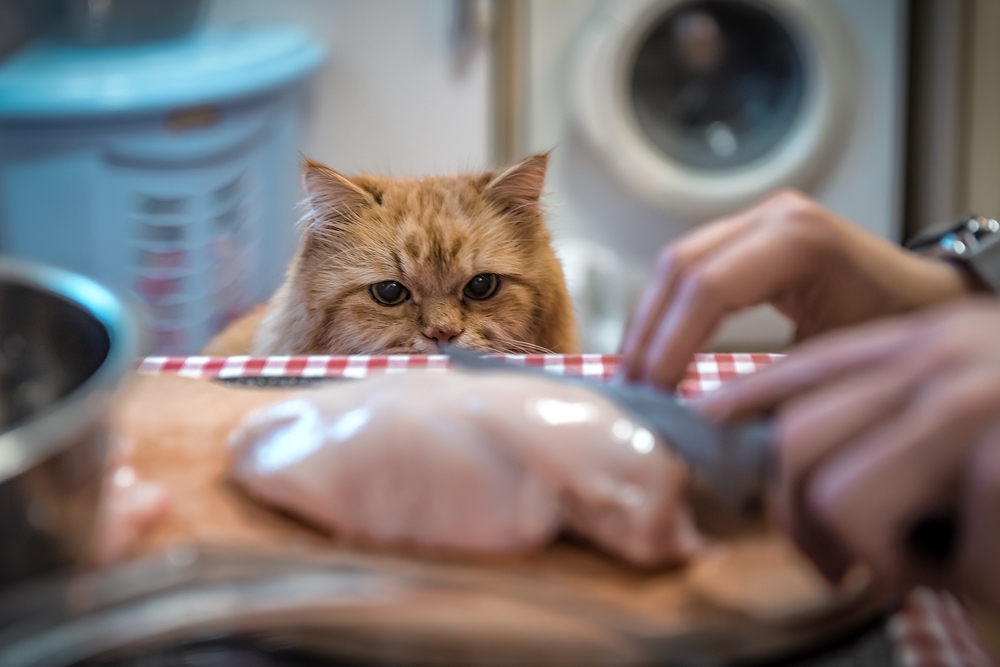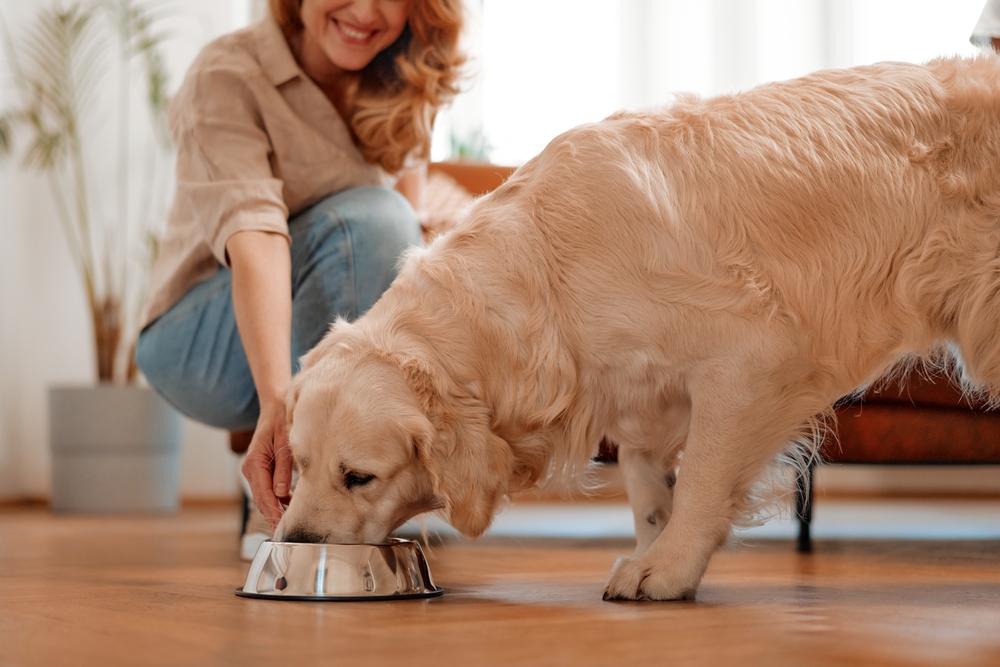Making pet food at home has gained popularity in recent years. Pet owners often express concerns over commercial pet food quality, but creating a balanced nutritious pet food at home is challenging. Our South Austin Oliver Animal Hospital veterinary team explores the pros and cons, nutritional considerations, and best practices for making pet food at home.
Homemade pet food benefits
Cooking at home for your pet is undeniably appealing. Homemade pet foods may be a good choice for the following reasons:
- Ingredient control — When cooking at home, you control what goes into your pet’s meals. Commercial pet foods may contain additives that some pet owners prefer to avoid, and some pets are allergic or sensitive to common food ingredients.
- Freshness and quality — Homemade pet food is less processed than commercial options. Homemade meals’ freshness may appeal to some pets, potentially improving a picky appetite.
- Tailored nutrition — Pets’ dietary needs vary based on age, breed, health status, and activity level. By making your pet’s food at home, you can tailor the ingredients to their nutritional needs and address health issues such as allergies, obesity, or digestive problems.
Homemade pet food challenges
Although homemade food can be beneficial to your pet, some disadvantages exist. Consider home cooking’s challenges:
- Nutrient balance — Ensuring pet food is nutritionally complete and balanced is the biggest challenge to home cooking. Pets have specific dietary requirements to maintain their health, including a balance of proteins, fats, vitamins, and minerals. Without detailed planning and specialized knowledge, homemade diets can cause pets to have nutritional deficiencies.
- Time and effort — Preparing homemade pet food is time-consuming because it requires frequent shopping, cooking, and meal portioning. The commitment needed to prepare homemade food consistently can be a significant drawback for busy pet owners.
- Cost — Purchasing whole food ingredients and the extensive supplements required to balance a pet diet are often more expensive than purchasing commercial pet food. The sticker shock can deter many pet parents.
How to formulate a balanced pet diet at home
Before transitioning to a homemade diet, you must consult with our veterinary team or a veterinary nutritionist because we know how to design a diet that addresses pets’ basic nutrition needs and specific health conditions such as arthritis or kidney disease. Most homemade pet food recipes require supplements, including calcium, taurine, omega-3 fatty acids, and various vitamins and minerals. A nutritionist can develop a recipe or several recipes for you to follow and remain available to help you make adjustments or substitutions as needed.
Additional tips on cooking food for your pet

Choosing to make your pet’s food is a huge responsibility. You need to weigh the pros and cons and determine whether you have the time and budget to make meals that meet your pet’s nutritional needs. When deciding to make your pet’s food, consider the following:
- Ingredient rotation — Internet pet food gurus often recommend ingredient rotation, but this isn’t always the best strategy. Only rotate proteins if your veterinary nutritionist has developed recipes to account for this, as you’ll need to adjust fatty acid levels and supplements each time you change any ingredient in a pet food recipe.
- Cooking safety — Proper food handling and cooking are crucial to preventing your pet, you, and household members from contracting foodborne illnesses. Raw food diets are generally not recommended for pets with health issues or in households with immunocompromised people. Ensure meats are cooked thoroughly and practice good kitchen hygiene to avoid cross contamination. Always avoid toxic ingredients such as garlic powder or onions.
- Health monitoring — Regular veterinary checkups are important to monitor your pet’s health while you cook for them at home. Our team can assess your furry pal’s weight, coat condition, and overall health status with a physical exam. We may also recommend blood tests to check specific nutrient levels and organ function.
Making your pet’s food at home can be beneficial to their health, but doing so also presents significant challenges. Formulating a balanced diet or addressing specific health issues requires assistance from a veterinary nutrition professional. Contact our Oliver Animal Hospital team in South Austin to learn about nutrition recommendations for dogs and cats or to obtain a referral to a board-certified veterinary nutritionist.







Leave A Comment